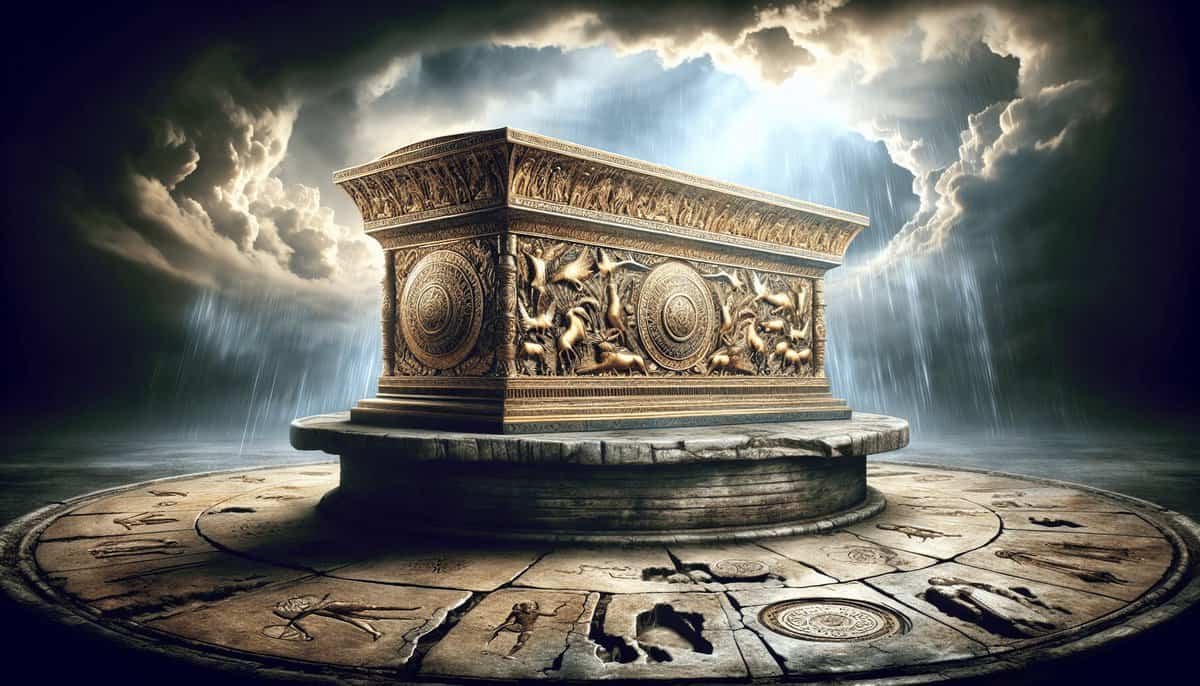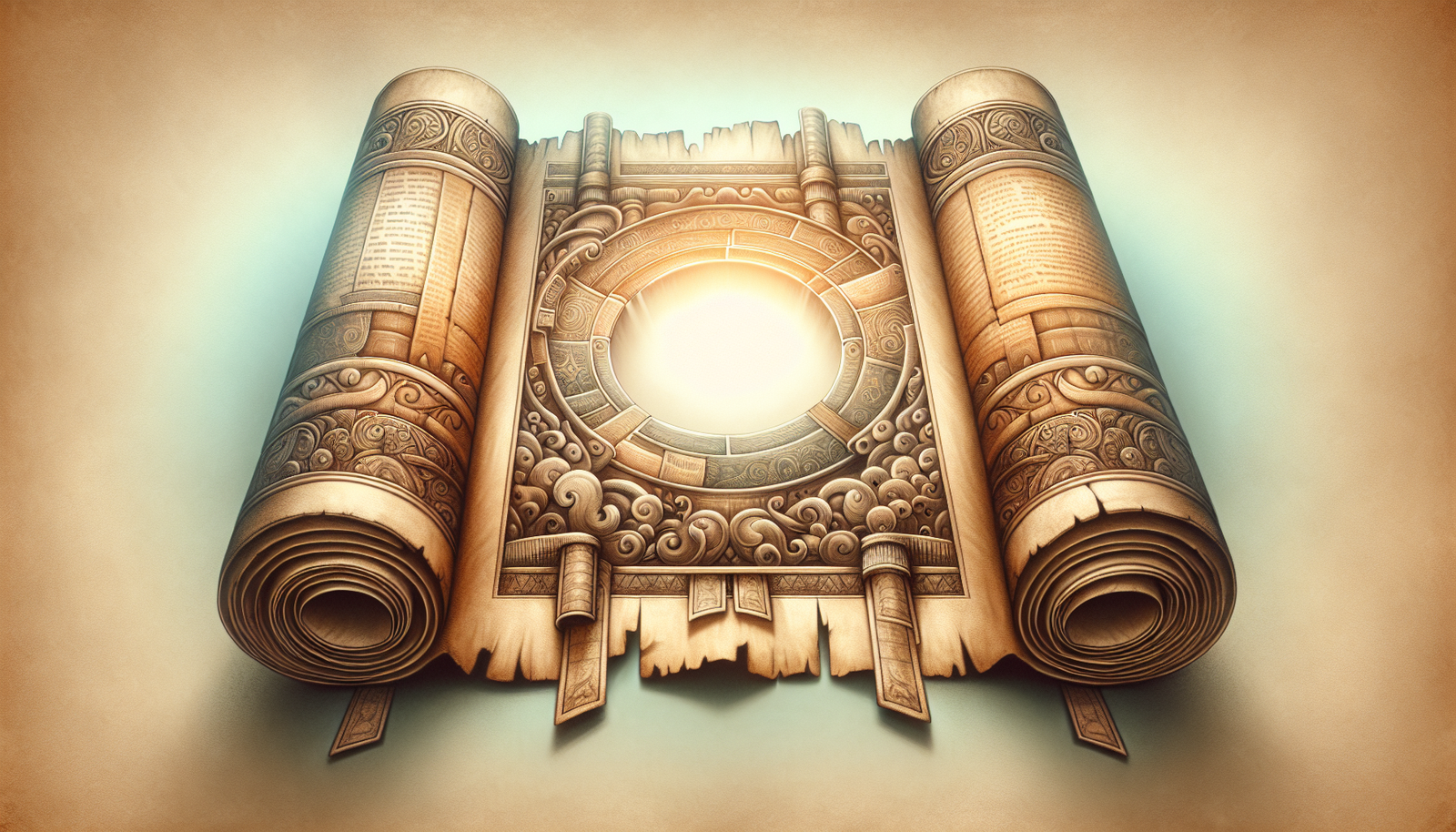What comes to your mind when you think of the Ark of the Covenant? A gilded box carrying divine promises, an ancient artifact shrouded in mystery, or perhaps the harbinger of chaos for those who dared to seize it? The tale of the Ark resonates not just as a religious relic but also as part of a larger historical narrative that revolves around power, warfare, and cultural identity.

The Ark of the Covenant: A Sacred Relic
To begin, the Ark of the Covenant holds a significant place in biblical lore, traditionally believed to contain the stone tablets of the Ten Commandments. At its very essence, it symbolizes the presence of God among the Israelites during their journey through the wilderness, bringing with it both reverence and awe.
Historical Context of the Ark
The Ark first appears in the Book of Exodus, where it is described in detail. Constructed by the Israelites under Moses’ guidance, this precious object was not merely decorative; it was a covenantal promise, serving as a type of throne for the divine presence. This notion of divine kingship is crucial, as it establishes the Ark as not just an artifact but a central player in the power dynamics of ancient Israel.
Archaeological Insights
Archaeological evidence supporting the existence of the Ark is scant. However, scholars reference the city of Jericho and the conquest narratives found in the Book of Joshua. Archaeologists generally agree that Jericho was a significant center during the late Bronze Age. Some excavations indicate that the city might have been destroyed around the time Israelite conquests would have been taking place.
Given that the Ark was carried during these military campaigns, it raised questions: Did this artifact influence the outcomes of these conflicts? How did it alter the course of events in the ancient Near East? The answer seems to reflect not just physical warfare but also ideological battles over faith and existence.
The Idol-Seizing Conquerors
With its immense power and symbolic resonance, the Ark did not emerge unscathed from the hands of those wanting to control it. Ancient conquerors weren’t just after land and resources; they sought objects like the Ark, believing they held divine favor and power.
The Philistines: A Case Study
Take, for instance, the Philistines, the perennial enemies of the Israelites. When the Philistines captured the Ark after defeating the Israelite forces at Ebenezer, they thought it was a way to seize the divine power of the Israelites. Instead of bestowing them with victory, the Ark brought calamity upon them, as chronicled in 1 Samuel 5. Their cities experienced plagues, leading to the conclusion that the Ark was a double-edged sword.
Why the Ark Backfired
- Cultural Perspective: The Philistines misunderstood the Ark’s significance. For them, it was a trophy of war, but for the Israelites, it was the embodiment of their covenant with God. When these two different spiritual philosophies collided, chaos ensued.
- Divine Retribution: The Biblical narrative describes how their cities closed in on them with afflictions like tumors. It suggests that there’s something more to the Ark than mere wood and gold; it carried with it a heavy sense of divine authority.
The Ark as a Symbol of Power
Throughout history, powerful artifacts often symbolize authority, and the Ark was no exception. Conquerors believed that possession of the Ark could legitimize their rule or grant them victories in war. But time and again, Scripture indicates that such seizing would lead to their downfall.
- The Assyrians: These mighty conquerors were known for their brutal conquests and distant marches. Although they did not capture the Ark, their military campaigns against Israel demonstrated how treasures from Jerusalem were coveted—often viewed as blessings or enticements to turn rulers into divine leaders.
- The Babylonians: When Babylon fell upon Jerusalem, the Ark soon transcended into a topic of discussion amongst historians. It is assumed that the Ark was lost during these upheavals. Scholars argue over whether it was taken to Babylon or destroyed intact in the city.

Theological Underpinnings
Another layer to consider is the theological implications surrounding the Ark’s power. The narrative complicates itself when viewed through the lens of faith: How does one reconcile divine favor with earthly conflict?
The Power of Divine Presence
In theological context, the Ark represents more than just a box; it embodies God’s presence. This divine essence is what empowered the Israelites in battle, making them feel invincible against their foes. The fluctuating arc of power—where God’s favor could effortlessly shift—could be seen as a reminder of the fragility of human ambition.
The Dangers of Idol Worship
The concept of idol-seizing also opens the gates to discussions about idol worship. The Israelites, at numerous junctures, fell into the trap of worshipping the Ark itself rather than the God it represented. This reflection brings to light an essential theological teaching: that the object of worship must never overshadow the essence of what is divine.
The Cultural Impact of the Ark
As far-reaching as its military implications were, the Ark of the Covenant also fostered cultural identities and narratives that still hold relevance today.
The Ark in Modern Pop Culture
Can you imagine Indiana Jones without the iconic chase for the Ark? The cinematic world has leveraged the lore surrounding the Ark to create stories that resonate with themes of adventure, morality, and the battle between good and evil. In popular culture, the Ark becomes a symbol of ultimate knowledge and power rather than just a mere historical artifact.
Symbolism in Literature
The narrative of the Ark has found its place in the works of theologians and poets alike. The interplay between divine and human struggles has inspired countless interpretations, turning the Ark into a symbol of both hope and terror. Writers have utilized it as a motif to question faith, authority, and the very nature of truth.
The Ark and Historical Identity
For modern Jewish and Christian communities, the Ark serves as a potent emblem of their historical narratives. The story of the Ark is more than just ancient lore; it’s a foundational story that speaks to cultural resilience and spiritual authenticity. It invites believers to reflect on their ancestry, reminding them of their journey—the highs and lows of faith, identity, and divine presence.
Modern Perspectives: Archaeology and Faith
So where does archaeological inquiry fall within this tapestry of belief? Can faith coexist with scholarly research? It appears that they do, even if one sometimes questions the validity of the other.
Bridging Archaeology and Theology
Many contemporary archaeologists work in collaboration with religious scholars, rather than at odds with them. They aren’t dismissing the Ark’s significance; instead, they are looking into providing context. The archaeological search for the Ark and its associated sites continues, raising the question: what treasures or truths still remain unearthed?
The Future of Ark Research
Recent archaeological advancements have shed light on the ancient past. The interest around the Ark is not fading; rather, it evolves. So, what should be the next steps in the research? Future archaeological discoveries could provide substantial insights, possibly recontextualizing our understanding of ancient narratives.
The Trust in Scholarship
What’s essential is that trust remains at the core of any scholarly pursuit. By sharing credible findings and maintaining transparency, scholars can offer important discoveries that resonate with both academic and public audiences.
Conclusion: Whispers from the Past
Reflecting on the Ark’s complex journey helps to unravel layers of meaning that extend far beyond its physical description. It is a conduit through which we can better understand the cultural, theological, and historical fabrics intertwined in the story of human civilization.
The Ark’s legends remind us that the dynamics of power, belief, and identity are timeless issues that echo throughout history. As we ponder the intricacies of this ancient relic, we realize it is more than an artifact; it embodies an everlasting dialogue between humankind and the divine—between those seizing power and those bearing it in sanctity.
In concluding, it’s essential to recognize the inherent messages that echo from ancient texts and archaeological sites. What does the Ark symbolize for you today? As you contemplate its historic journeys, consider reflecting on your own relationship with faith, power, and cultural identity. The whispers from the past can guide contemporary understanding and perhaps lead you to your own revelations.



